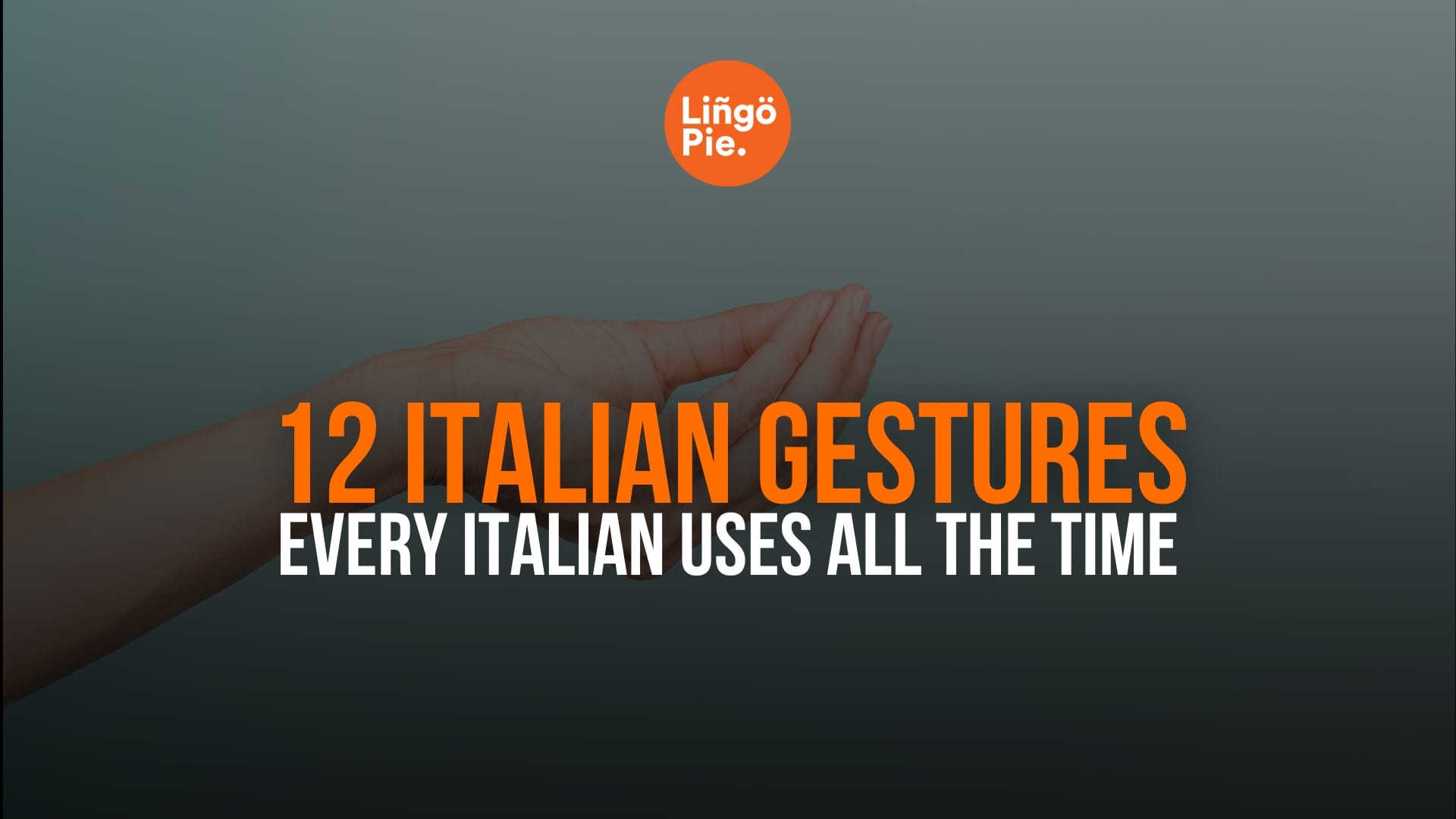Let's be honest—you're not here to read a lengthy introduction about how French is the language of love or how it’ll open doors to amazing literature and culture. You’re here because you want to learn French by yourself, and you want to know the most effective way to do it without wasting time!
In this post, I'm going to share with you the best way to learn French on your own this year. I'll also walk you through some proven strategies that'll help you start speaking conversational French faster than you might think.
- Is Spanish easier than French to Learn?
- 100+ Basic French Words: Essential Guide for Beginners
- Dr. Mrs. Vandertramp Verbs: 3 Easy Tricks For Beginners

Getting Started With French
French is one of the most influential languages in the world, spoken by approximately 300 million people across five continents. As an official language in 32 countries, it ranks as the fifth most widely spoken language globally.
What makes French particularly appealing to learn:
- It's a Romance language with Latin roots, sharing vocabulary similarities with English (about 40-50% of English vocabulary has French origins)
- It follows logical pronunciation rules once you master the basics
- It's considered a “gateway language” that makes learning other Romance languages like Spanish, Italian, and Portuguese easier
- French is the second most widely taught language after English
- It's an official language of major international organizations (UN, EU, NATO, UNESCO)
Beyond the practicalities, French offers a rich cultural heritage through literature, cinema, art, philosophy, and cuisine that truly comes alive when experienced in the original language.
Why Learn French on Your Own, Anyway?
Learning French independently offers three major advantages:
- You set the pace and schedule around your life (not some rigid classroom calendar)
- It's typically much cheaper than formal classes or tutors
- You can focus exclusively on what interests you most
But there's a catch—self-learning requires discipline and the right approach. Let's dive into what actually works in 2025.

How To Learn French On Your Own
1. Master French Pronunciation First (Two Weeks)
French pronunciation requires special attention to gender and tense structures, as written and spoken French can seem like two different languages. Those nasal sounds, silent letters, and the infamous French "r" can trip you up if you don't tackle them early.
Start by focusing on pronunciation for at least 1-2 weeks before diving into serious vocabulary and grammar. This investment pays enormous dividends later—you'll learn faster when you can actually hear and say the sounds correctly.
Resources that work better than ever in 2025:
- French phonetics videos on YouTube (free and more comprehensive than before)
- Language apps with advanced audio pronunciation features
- Forvo, a pronunciation dictionary with millions of words recorded by native speakers
2. Build a Strategic Vocabulary Foundation
According to research, the key to improving your language skills isn't finding more time – it's making better use of the time you have.
The most effective approach is learning the 600-800 most common French words first. These high-frequency words make up about 80% of everyday French conversation, giving you the biggest return on your time investment.
Focus on:
- Common verbs (être, avoir, aller, faire)
- Start with regular -er verbs (they make up 80% of French verbs)
- Essential adjectives (bon, nouveau, petit, grand)
- Everyday nouns (time, people, food, places)
- Question words and connectors
3. Learn Grammar Through Usage, Not Rules
French grammar doesn't have to be scary if you start with the basics and build gradually. The key is learning grammar through actual usage rather than memorizing endless rules.
Instead, learn grammar through patterns and phrases. For example, rather than memorizing all forms of the verb "aller" (to go), learn useful phrases like:
- Je vais au cinéma (I'm going to the movies)
- Nous allons manger (We're going to eat)
This contextual learning helps your brain absorb the patterns naturally, just like children learn their first language.

4. Create Your Own Immersion Environment
One of the most effective ways to learn French quickly is to immerse yourself in the language, ideally by surrounding yourself with French 24/7. While traveling to a French-speaking country is ideal, you can create an immersive environment at home.
Practical ways to do this in 2025:
- Change your phone language to French
- Watch French Netflix shows with French subtitles using language learning extensions
- Listen to French podcasts during your commute
- Try French dictée exercises where you write down what you hear from songs or podcasts, then check your work
- Label household items with their French names using digital or physical labels
- Join online French communities and conversation groups
Aim for at least 30 minutes of immersion daily. It's more effective to do 30 minutes every day than 3 hours once a week.

5. Practice Output from Day One
Many learners get stuck in "input mode"—constantly consuming French content but never producing the language themselves.
Force yourself to speak and write French from the beginning, even when it feels uncomfortable:
- Talk to yourself in French while doing chores
- Keep a simple French journal (even just 2-3 sentences daily)
- Record yourself speaking and listen back
- Use language exchange apps to chat with native speakers
There are three main options for building your confidence in speaking French: 1-on-1 classes (most effective), group classes (social), and language exchanges (cheap/free).

The Best Tools for French Learners in 2025
The landscape of French learning tools has evolved significantly in recent years. Here are the most effective resources based on current research and user success:
For Complete Beginners (0-3 months)
- Lingopie: The standout platform for natural French acquisition that combines authentic French shows and movies with interactive learning features. Unlike traditional language apps that feel like studying, Lingopie transforms learning into entertainment. You can watch real French content with dual subtitles, click on any word for instant translations, and save words to personalized flashcards—all while enjoying content you'd actually want to watch.
- Pronunciation Practice: Forvo for hearing native speaker pronunciations
- Grammar Basics: Grammar checkers like BonPatron for identifying and fixing mistakes
- Structured Learning: Mini-stories with repetition for building patterns
For Intermediate Learners (3-12 months)
- Authentic Content: Easy French YouTube channel with street interviews and subtitles
- Reading Practice: Graduated readers or news sites in simplified French
- Speaking Practice: iTalki or Preply for affordable 1-on-1 conversations with tutors
- Vocabulary Building: Spaced repetition systems (SRS) for retaining what you learn
For Advanced Learners (12+ months)
- Immersion: French podcasts on specific topics that interest you
- Writing Practice: Write posts on HelloTalk or similar platforms for corrections from natives
- Vocabulary Expansion: Reading authentic French books and articles
- Cultural Understanding: French films without subtitles and cultural discussion groups
Can You Learn French With Lingopie?
Yes, you can learn French on your own with Lingopie! While there are many tools available for learning French, Lingopie deserves special attention as it addresses the biggest challenge most language learners face: staying motivated while getting authentic language exposure.
- Learn through entertainment: Instead of dull exercises, you watch actual French shows and movies that native speakers enjoy
- Natural language acquisition: You learn French the way children learn—through context and repetition, not memorization
- Interactive transcripts: Click any word to see translations and add them to your personal vocabulary list
- Adaptive learning: The platform tracks what you know and helps reinforce vocabulary at optimal intervals
- Cultural immersion: You absorb French culture, slang, and expressions naturally through content
- Flexible learning: Use it anywhere—on your commute, during lunch breaks, or in the evening instead of regular streaming
Many learners report that just 30 minutes of Lingopie daily provides more practical progress than hours of traditional study because it makes French learning feel less like work and more like entertainment you’d choose anyway.
Science-Backed Study Schedule That Works
Before diving into French resources, it's important to consider how you naturally learn best. Knowing your learning style will help you choose the right tools and create a study routine that actually sticks.
If you're serious about learning French on your own, here's a sample schedule based on the latest research in language acquisition:
Week 1-2: Pronunciation Focus
- 20 minutes daily on French sounds and phonetics
- Learn basic greetings and introductions
- Start recognizing the most common words
Week 3-4: Core Vocabulary Builder
- 15 minutes daily with spaced repetition flashcards
- 15 minutes practicing simple sentences using new words
- Begin listening to slow French content for 10 minutes daily
Week 5-6: Basic Conversations
- 20 minutes daily practicing core conversation patterns
- 15 minutes of immersion through videos or podcasts
- Start writing 2-3 simple sentences in a journal
Week 7-8: Expanding Your Range
- 15 minutes reviewing and expanding vocabulary
- 15 minutes practicing with a language exchange partner
- 20 minutes consuming French content you enjoy
The 5 Biggest Mistakes When Learning French
Self-learners often make these critical errors that research shows severely hamper progress:
- Perfectionism paralysis: Waiting until you "feel ready" to speak. You'll never feel ready—start now.
- Inconsistency: The speed at which you learn French will largely be determined by your ability to practice consistently. If you can make learning French a habit, you won't need to rely on willpower or motivation, both of which fluctuate.
- Using too many resources: Jumping between 5 different apps and methods creates confusion. Pick 2-3 quality resources and stick with them.
- Neglecting speaking practice: Many learners can read and understand but freeze when speaking. Prioritize output from the beginning.
- Focusing on grammar rules first: There is too much emphasis on grammar in French instruction, and this is unhelpful. We need to immerse ourselves in the language right away by listening to and reading stories.
Overcoming Challenges When Learning French
Let's face it: learning French on your own comes with its share of hurdles. But here's the good news – every challenge has a practical solution, and understanding French becomes easier when you know how to tackle each obstacle strategically.
Challenge #1: "French Pronunciation Seems Impossible!"
Many French learners struggle with French sounds that don't exist in English. The solution? Break it down:
- Start with basic French vocabulary and focus on one sound at a time
- Use Lingopie's native French speakers as your guide
- Practice speaking French daily, even if just for 5 minutes
- Record yourself speaking French phrases and compare with native audio
- Focus on French listening practice to train your ear
Challenge #2: "French Grammar Is Overwhelming!"
Yes, French grammar can seem complex, but don't let verb conjugations scare you:
- Begin with basic words and simple French verbs
- Watch French movies with French subtitles to see grammar in context
- Practice writing short sentences daily
- Focus on understanding spoken French first
- Use a grammar book as a reference, not your primary learning tool
Challenge #3: "I Can't Find Practice Partners!"
You don't always need a French teacher or language exchange partner:
- Join online French speaking practice groups
- Watch French videos and repeat the dialogue
- Change your device's language settings to French
- Listen to French music and try to sing along
- Use Lingopie's interactive French transcript features
Challenge #4: "I Keep Forgetting New Vocabulary!"
Building your French vocabulary takes time, but here's how to make it stick:
- Learn new words in context through French shows
- Create connections between French and English vocabulary
- Practice with real-life situations from everyday life
- Use vocabulary lessons from actual French content
- Review new vocabulary through writing and speaking practice
Challenge #5: "I Don’t Have Time for French Classes!"
Learning at your own pace is actually advantageous:
- Set aside 20 minutes daily for French listening comprehension
- Use your commute time for audio recordings
- Watch French YouTube channels during breaks
- Practice reading comprehension with short articles
- Use language learning apps when you have spare moments
The key to improving your language skills isn't finding more time – it's making better use of the time you have. That's why tools like Lingopie are so valuable for intermediate learners and beginners alike. You can practice French while enjoying authentic French culture through shows and movies, building your reading comprehension and listening skills simultaneously.

What Success Really Looks Like
With consistent self-study following this approach, here's what you can realistically expect:
- 2-3 months: Handle basic conversations, introduce yourself, order in restaurants
- 6 months: Discuss familiar topics, understand slow native speech, watch simple shows
- 1 year: Converse on various topics, understand much of native content, read books with a dictionary
Your "why" for learning French matters more than you might think. Whether you're planning a dream trip to Paris, need it for your career, or just fell in love with French cinema, having a clear motivation will keep you going when learning gets challenging.
The Lingopie Advantage
Traditional language learning often feels like a chore, leading many aspiring French speakers to abandon their studies. Platforms like Lingopie are changing this paradigm by making French acquisition feel more like entertainment than study.
By incorporating Lingopie's features into your daily routine—even if it’s just 15-20 minutes while having your morning coffee—you create a sustainable language learning habit that can transform your French abilities over time. Combining engaging content, interactive features, and natural language exposure creates the perfect environment for beginners and intermediate learners.
Remember, language learning is a marathon, not a sprint. The key is consistency and using methods that keep you engaged and motivated.
So, are you ready to embark on your French learning journey? Allons-y!







![How To Learn German Fast As A Beginner [Tips, Tricks, And Resources]](/blog/content/images/size/w1200/2025/04/Best-way-to-learn-German.jpg)

![Is Lingopie Free? Plans, Pricing & Free Trial Guide [2026]](/blog/content/images/size/w300/2026/01/Is-Lingopie-Free.jpg)
![How To Gift Lingopie: One-Year vs Lifetime Subscription [GUIDE]](/blog/content/images/size/w300/2026/01/lingopie-gift-subscription.jpg)
![What is Lingopie? Complete Platform Guide [2026]](/blog/content/images/size/w300/2026/01/What-is-Lingopie.jpg)